Polyethylene-terephthalate PET – Reshaping the recycling plastics marketThe rapid growth of the global plastics recycling market hides a sector undergoing dramatic change14-02-2024 - Arhive
Polyethylene-terephthalate PET
Crude Oil Prices Trend
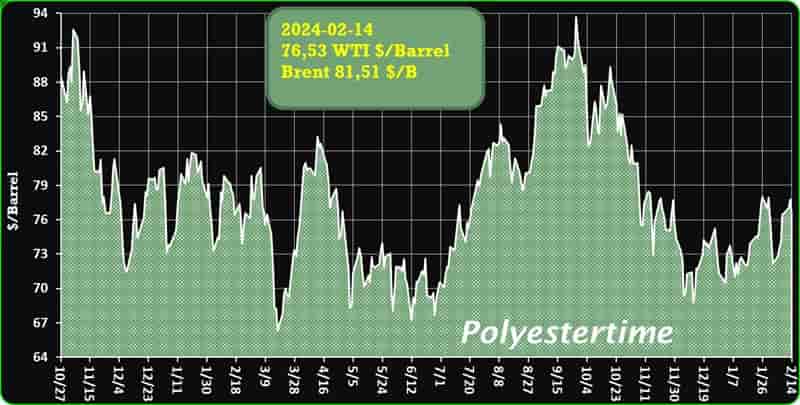
Crude Oil Prices Trend by Polyestertime
HydroGraph PET Test Results Show Improved Plastic Performance
HydroGraph Clean Power Inc. has recently announced groundbreaking results from its research endeavors, spotlighting the integration of its cutting-edge graphene technology with polyethylene terephthalate (PET). PET, a widely used plastic resin, finds applications across diverse sectors such as water and soda bottle manufacturing, food packaging, and textile production. By infusing HydroGraph’s exclusive graphene into PET, the company aims to enhance the plastic’s performance, potentially reducing material usage in plastic bottles by a significant margin of 10% to 15%.
In today’s global landscape, there’s a growing corporate commitment to reduce disposable plastic usage in products. This aligns with evolving consumer preferences, regulatory pressures, and environmental concerns. However, completely eliminating plastic from the global economy poses considerable challenges. Therefore, companies are exploring innovative strategies and technologies to extend the lifespan of plastics while minimizing environmental impact. Polyethylene-terephthalate PET
HydroGraph’s research primarily focused on evaluating its proprietary graphene variant, FGA-1, to bolster the mechanical properties of PET. Through rigorous testing, HydroGraph aimed to gauge graphene’s efficacy in enhancing PET’s mechanical strength and durability. The results were highly promising, indicating potential material usage reduction of up to 15%, translating to significant cost savings estimated at USD 75 million.
To ensure the integrity of the testing process, HydroGraph collaborated with the Graphene Engineering Innovation Centre (GEIC) at the University of Manchester. Leveraging GEIC’s advanced facilities and expertise, HydroGraph conducted thorough testing protocols, producing robust data to support its research.
Furthermore, HydroGraph Clean Power Inc. has emerged as a prominent figure in Greater Manchester’s thriving investment zone, contributing significantly to the region’s technological advancement and economic growth. Positioned within Greater Manchester’s graphene research and development hub, HydroGraph is poised to capitalize on the sector’s rapid expansion, solidifying its position as a key player in the global graphene market. Polyethylene-terephthalate PET

Reshaping the recycling plastics marketThe rapid growth of the global plastics recycling market hides a sector undergoing dramatic change
Recent innovations all along the plastics recycling value chain are transforming the very foundations of the industry while unlocking new found value in used plastic.
Recycling medical plastics
Driven by the pressing need to expand recycling capacity and performance for greater circularity, these advancements promise to reshape the market landscape in the years ahead. From cutting-edge chemical processes to artificial intelligence systems optimising sorting accuracy, new technologies are evolving rapidly to handle more waste plastic, produce higher-quality recycled resin, open new end markets and strengthen value recovery economics.
The success of these innovations will determine if recycled polymers can expand their footprint substantially across global manufacturing one day. As technology barriers fall, the conditions strengthen for recycled resins to capture 20-50% share across major plastic segments as projected over the next 10-20 years by leading industry groups like the Alliance to End Plastic Waste. Polyethylene-terephthalate PET
Recycled plastics refer to plastics that undergo processes such as sorting, cleaning, and reprocessing to be reused in various applications. Recycling plastics helps mitigate environmental pollution, reduce dependence on virgin plastic production, and conserve natural resources.
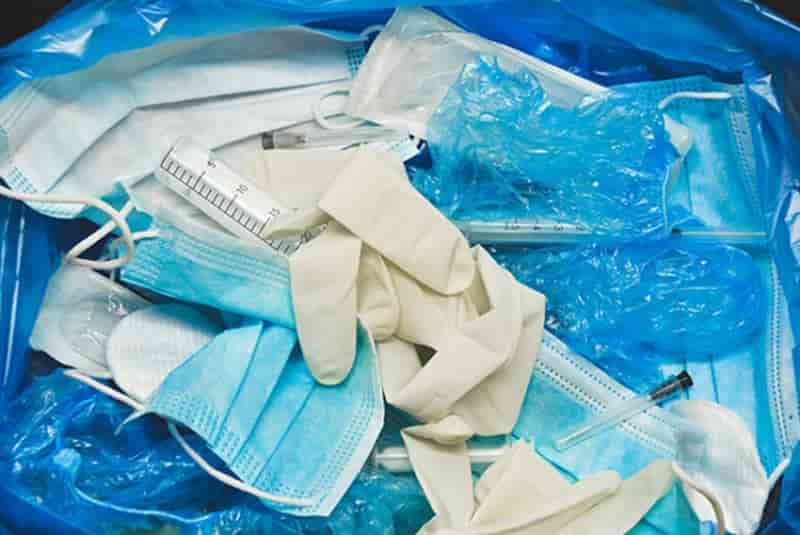
NextChem Tech and ENGIE have joined forces in a strategic partnership aimed at advancing biomethane technology for a zero-carbon industry
Their collaboration will focus on developing and commercializing advanced methods to produce synthetic methane from dry biomass waste.
Under this partnership, NextChem Tech will serve as a key strategic partner and co-developer, leveraging proprietary technologies from both NextChem and ENGIE. Together, they will optimize and integrate these technologies to create an advanced process for biomethane production. Polyethylene-terephthalate PET
The culmination of this effort will be the industrialization of the technology through the Salamandre project in Le Havre. Following this milestone, NextChem Tech will become the exclusive licensor of the integrated package, enabling global dissemination of the advanced biomethane solution.
This collaboration represents a significant step forward in the journey towards a zero-carbon industry. By offering environmentally friendly solutions through a circular approach, NextChem Tech and ENGIE reaffirm their commitment to sustainable energy transition.
In summary, the strategic partnership between NextChem Tech and ENGIE signifies a concerted effort to drive innovation in biomethane technology, thereby contributing to the broader goal of achieving a carbon-neutral industrial sector. Polyethylene-terephthalate PET
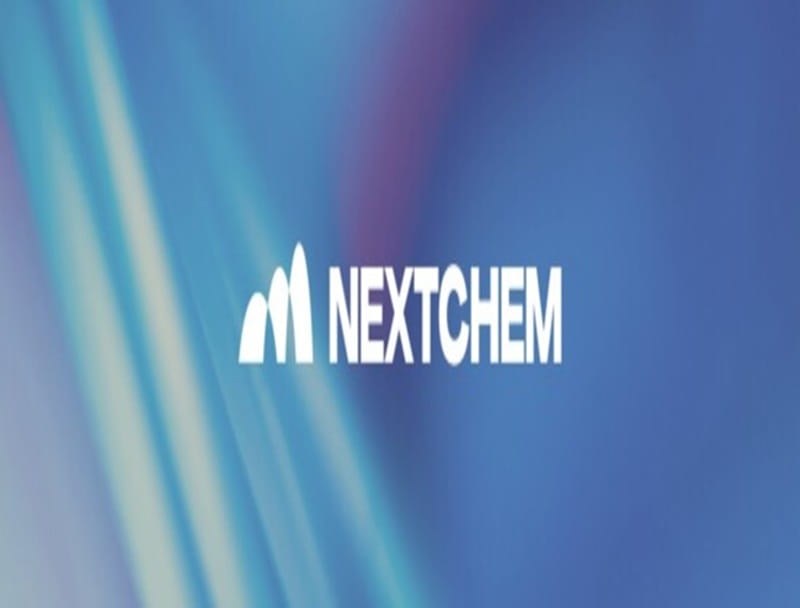
Recycling Partners Collaborate to Eliminate Production Scrap Waste at NPE2024
A collaboration between show organizer PLASTICS, recycler CPR and size reduction experts WEIMA and Conair will seek to recover and recycle 100% of the parts produced at the show.
Around 8,000 communities across the United States have some variation of a recycling program that collects plastics from homes and finds a new life for it. These programs are widely diverse in accepted materials and success rates. Equally important are postindustrial scrap management programs at thousands of production facilities across the country. This May in Orlando, a completely different community will emerge with its own unique recycling program. Polyethylene-terephthalate PET
On May 6, a pop-up city will assemble in the Orange County Convention Center as some 55,000 attendees assemble for NPE2024, the largest plastics event in North America. They will come to learn, educate and network, but also show what they can do and see what others can do. Exhibitors will want to show that their equipment at its best and will be churning out parts in the process.
And what will happen to those parts, will they be tossed in a dumpster and forgotten? Not at NPE2024. It wouldn’t do. But it will take a coordinated effort to collect the materials flying out of machines at breakneck speed and irregular intervals, break them down and get them on to a new owner who can turn them into new products. Fortunately, exactly the right people for the job will be on hand. Polyethylene-terephthalate PET
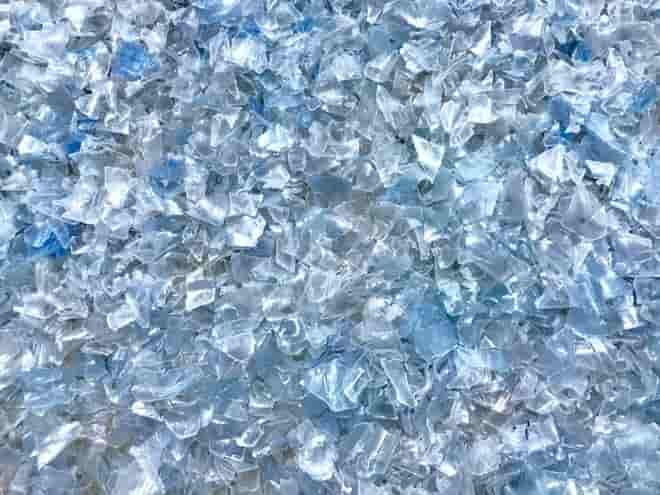
Canada Backs BOSK Bioproducts’ Compostable Bioplastics Boost
SME to receive $1M in financial assistance from CED to foster sustainable development in Quebec’s regions by offering an ecofriendly alternative to polluting plastics.
SMEs have a key role to play in ensuring Quebec’s economy makes the environmental transition. They seek to innovate and grow by becoming more competitive in a greener world. That is why the Honourable Soraya Martinez Ferrada, Minister of Tourism and Minister responsible for CED, accompanied by the Honourable Jean‑Yves Duclos, Member of Parliament for Québec and Minister of Public Services and Procurement, took the opportunity during her visit to announce a repayable contribution of $1M for BOSK Bioproducts Inc. This CED support will enable the business to increase its production capacity by establishing a manufacturing unit for compostable bioplastics. The assistance provided will focus on the cost of acquiring equipment and installing, testing, and commissioning this unit. Polyethylene-terephthalate PET
BOSK Bioproducts is an innovative SME based on the model of a circular economy to collect industrial waste, such as bio-sludge from paper manufacturing, and convert it into compostable bioplastics. Its new manufacturing unit will enable it to improve its production capacity by securing its supply chain. The business will thus be able itself to produce polyhydroxyalkanoate (PHA), a key component of REGEN™, a bio-based bioplastic it has developed. Through this 100% compostable solution, BOSK aims to significantly reduce plastic waste in the environment.
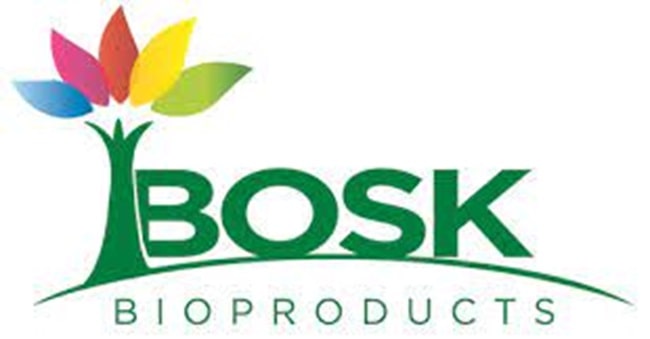
Breakthrough CFRP Recycling Innovation from Oak Ridge National Laboratory: A Step Towards Sustainable Manufacturing
A Groundbreaking Innovation in Polymer Recycling
In a significant breakthrough, researchers at the Department of Energy’s Oak Ridge National Laboratory have developed a closed-loop process for creating a tough and recyclable carbon-fiber-reinforced polymer (CFRP). This innovative technology allows for the reprocessing and recycling of the carbon fiber composite materials, addressing the significant carbon footprint associated with traditional CFRPs. Polyethylene-terephthalate PET
The Technology Behind the Breakthrough
The technology developed incorporates dynamic crosslinking into a commodity polymer, thus functionalizing it. The addition of a crosslinker makes it akin to thermoset materials, thereby allowing for the reprocessing or recycling of the carbon fiber composite materials without losing their mechanical properties.
Exceptional Strength and Resilience
The resulting recyclable carbon fiber composite possesses very strong interfacial adhesion and can be reincarnated back into its starting materials.
Impressively, the strength of the composite is almost two times higher than a conventional epoxy composite, and the tensile strength is the highest ever among similar fiber-reinforced composite materials. Polyethylene-terephthalate PET
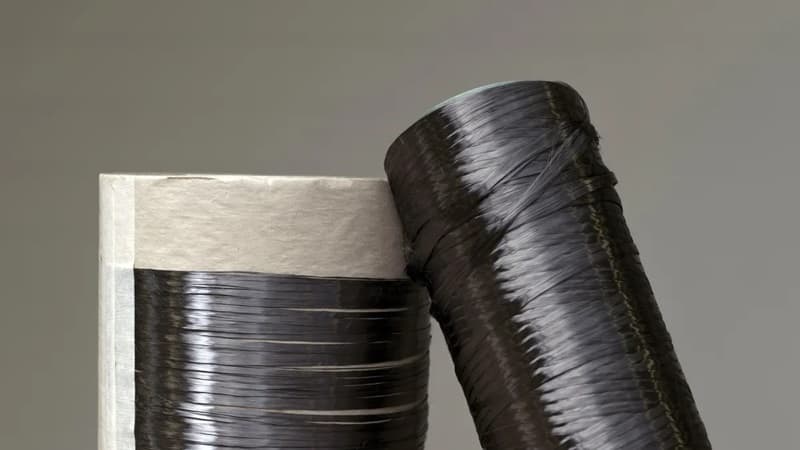
Linde Engineering and Daimler Truck have set a groundbreaking standard in liquid hydrogen refueling technology, marking a significant advancement in Europe’s journey towards decarbonizing transportation
Through collaborative efforts, they’ve introduced the sLH2 process, revolutionizing the handling of subcooled liquid hydrogen. This innovative method offers numerous advantages over gaseous hydrogen, including higher storage density, extended range, quicker refueling, reduced costs, and enhanced energy efficiency.
Refueling a 40-ton heavy-duty truck carrying 80 kg of liquid hydrogen now takes merely ten to fifteen minutes, enabling a range of over 1,000 kilometers. Moreover, the sLH2 technology slashes hydrogen refueling station investment costs by two to three times and operational expenses by five to six times. Consequently, liquid hydrogen can now be reliably supplied throughout Europe. Polyethylene-terephthalate PET
The sLH2 process involves utilizing a specialized pump to marginally increase the pressure of liquid hydrogen, transforming it into subcooled liquid hydrogen (sLH2). This state of hydrogen streamlines the refueling process, minimizing energy losses and eliminating the need for data transmission between the station and vehicle, thus simplifying the solution.
The pilot sLH2 refueling station boasts a remarkable capacity of 400 kg per hour, demonstrating its efficiency compared to conventional methods. To promote widespread adoption, the technology is being made available through an ISO standard, with the inaugural public sLH2 pilot station unveiled in Wörth am Rhein.
This milestone event, attended by key stakeholders and international media, highlights the commitment of both companies to drive industry-wide adoption of hydrogen-powered transportation. Andreas Gorbach of Daimler Truck emphasizes the importance of collaboration to establish a common standard, while Juergen Nowicki of Linde Engineering underscores the practicality and environmental benefits of sLH2 as a viable alternative to diesel in the heavy-duty vehicle sector. Polyethylene-terephthalate PET
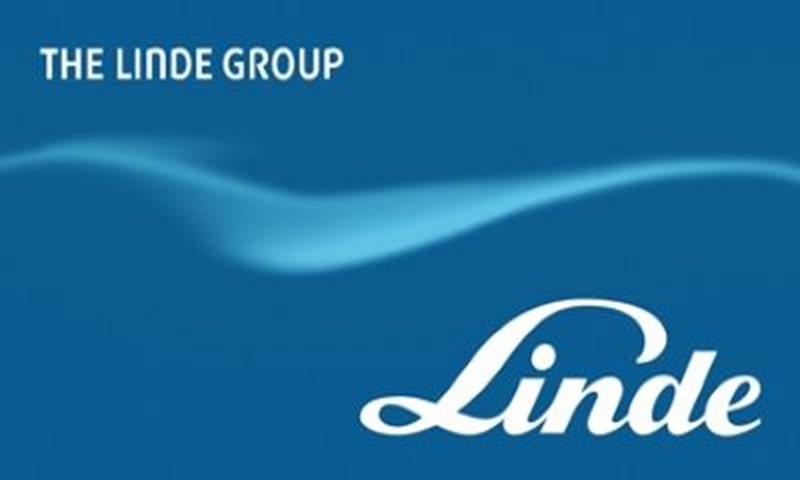
Polyethylene-terephthalate PET
